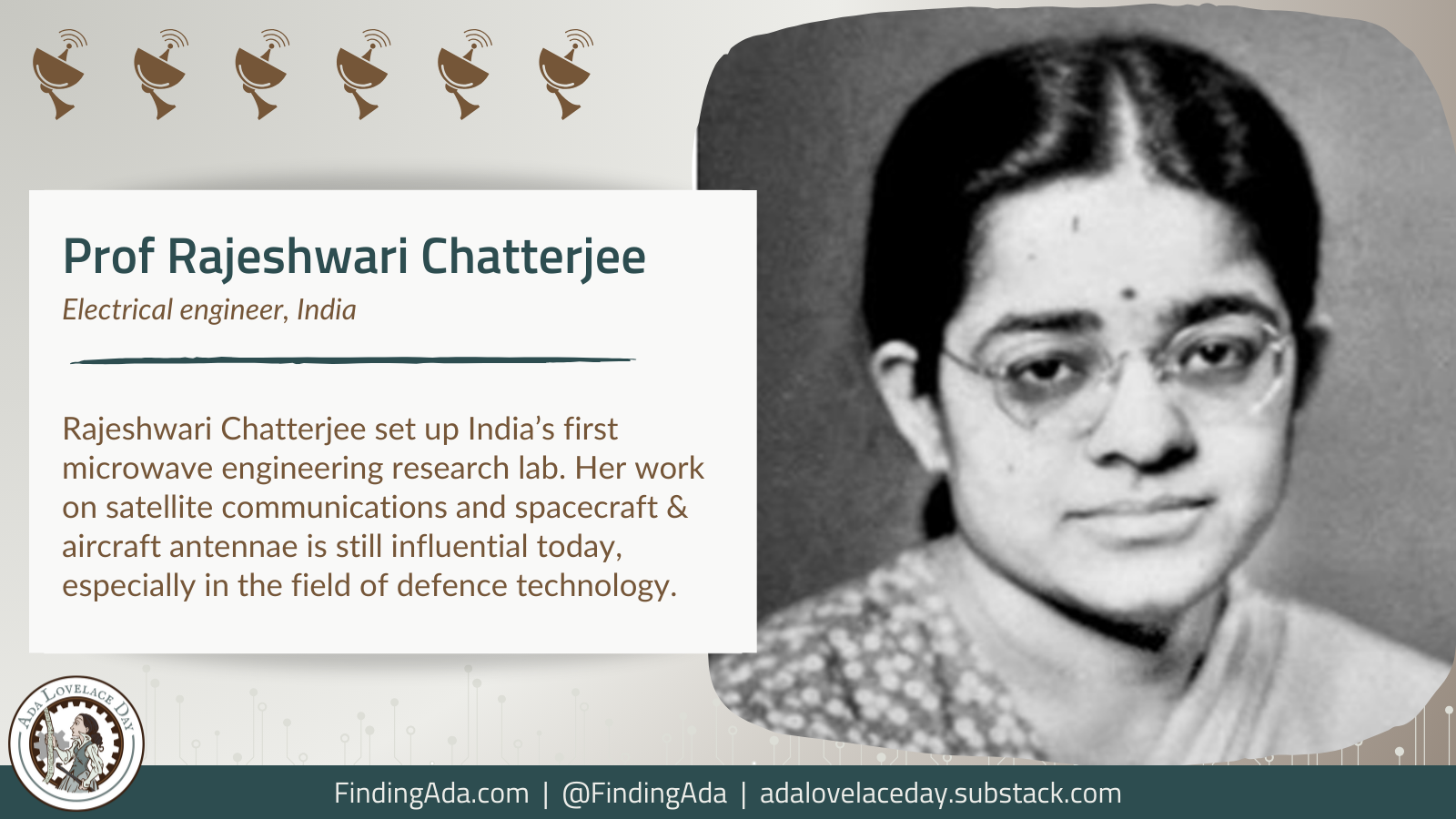Professor Rajeshwari Chatterjee
Professor Rajeshwari Chatterjee was an Indian scientist, educator and the first female engineer from the state of Karnataka. A professor at the Indian Institute of Science (IISc) in Bangalore, she was among the first Indian scientists to research microwave engineering, focusing mostly on passive microwave devices.
Chatterjee was born on 24 January 1922 in Karnataka, southwest India. Her grandmother was a university graduate and social activist who advocated for women’s education, and encouraged the young Chatterjee to pursue her studies. After a degree in mathematics from Central College of Bangalore, Chatterjee set out to join the Indian Institute of Science (IISc) as a research scholar in 1943.
Perhaps unsurprisingly, this was no easy task. Senior figures at the institute were well-known for their aversion to female students and Chatterjee was initially rejected – supposedly due to her lack of a physics degree, possibly because of her gender. Undeterred, she eventually persuaded IISc to accept her as a research student in communication engineering. She spent several years in the lab at the IISc, working on electronics research and specialising in ultra-high frequency measurements.
When World War Two came to an end, with India on the cusp of independence, Chatterjee got the chance to take her career to the next level. The government in Delhi was offering scholarships for bright Indian students to study abroad and she seized the opportunity, moving to the US to study at the University of Michigan in 1947.
After obtaining a master’s degree in electrical engineering in the US, Chatterjee completed her PhD at the University of Michigan in 1953, aged 31. Her supervisor was Professor William Gould Dow, a pioneer in electrical engineering who had helped develop life-saving radar jamming technology during the war.
A return to India, and to the IISc, followed. Chatterjee became a faculty member at the institute’s Department of Electrical Communication Engineering (ECE), making her its first female engineer. In later life, she became the department chairperson.
In the early 1950s, Chatterjee started building India’s first microwave engineering research lab with her husband, her fellow scientist and colleague Sisir Kumar Chatterjee. Microwave research was still in its infancy, and Chatterjee focused mostly on guided and radiated wave devices. Together, the Chatterjees developed courses in microwave technology and satellite communication, and were the first to teach this subject in India in the 1960s. Her research helped shape developments in aircraft and spacecraft antennae and is still considered relevant today, particularly in the fields of defence and radar technology.
Chatterjee retired from the IISc in 1982. Over a career spanning more than 30 years, she wrote over 100 research papers and seven books, including Elements of Microwave Engineering and her autobiography A Thousand Streams. She died on 3 September 2010, aged 88.
Her awards included the J.C. Bose Memorial prize for the best research paper from the Institution of Engineers, India, as well as the Ramlal Wadhwa Award for the best research and teaching work from the Institute of Electronics and Telecommunication Engineers, India.
Further Reading
- Rajeshwari Chatterjee, Wikipedia
- Rajeshwari Chatterjee, Google Arts & Culture
- Remembering Rajeswari Chatterjee, IISc’s First Woman Engineer, Sridevi Venkatesan and Subhayan Sahu, Connect, 22 May 2017
- Lucky to be where I am, Rajeshwari Chatterjee (by K Shashikala), Lilavati’s Daughters, 31 October 2008
Written by Moya Crockett, with thanks to Stylist for their support.
